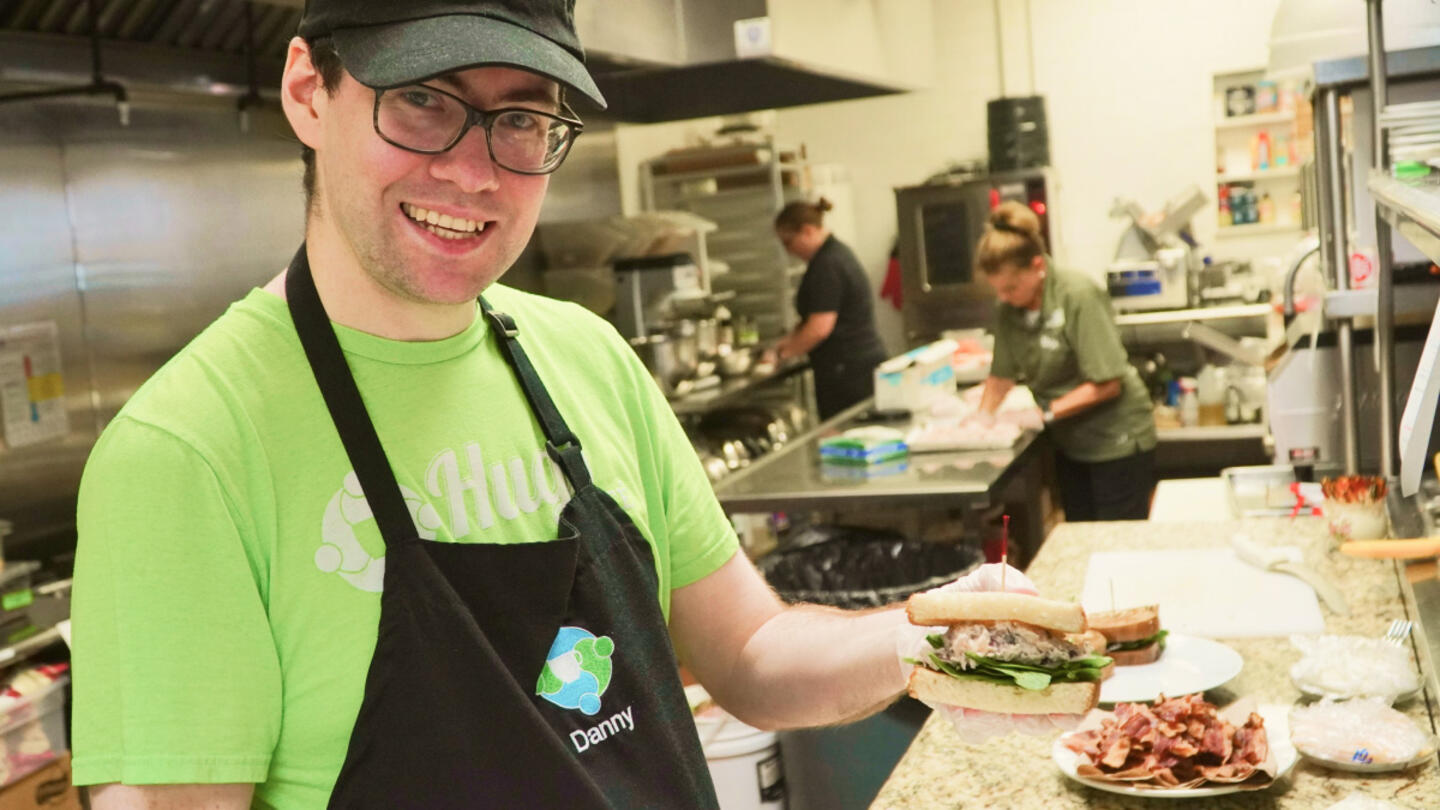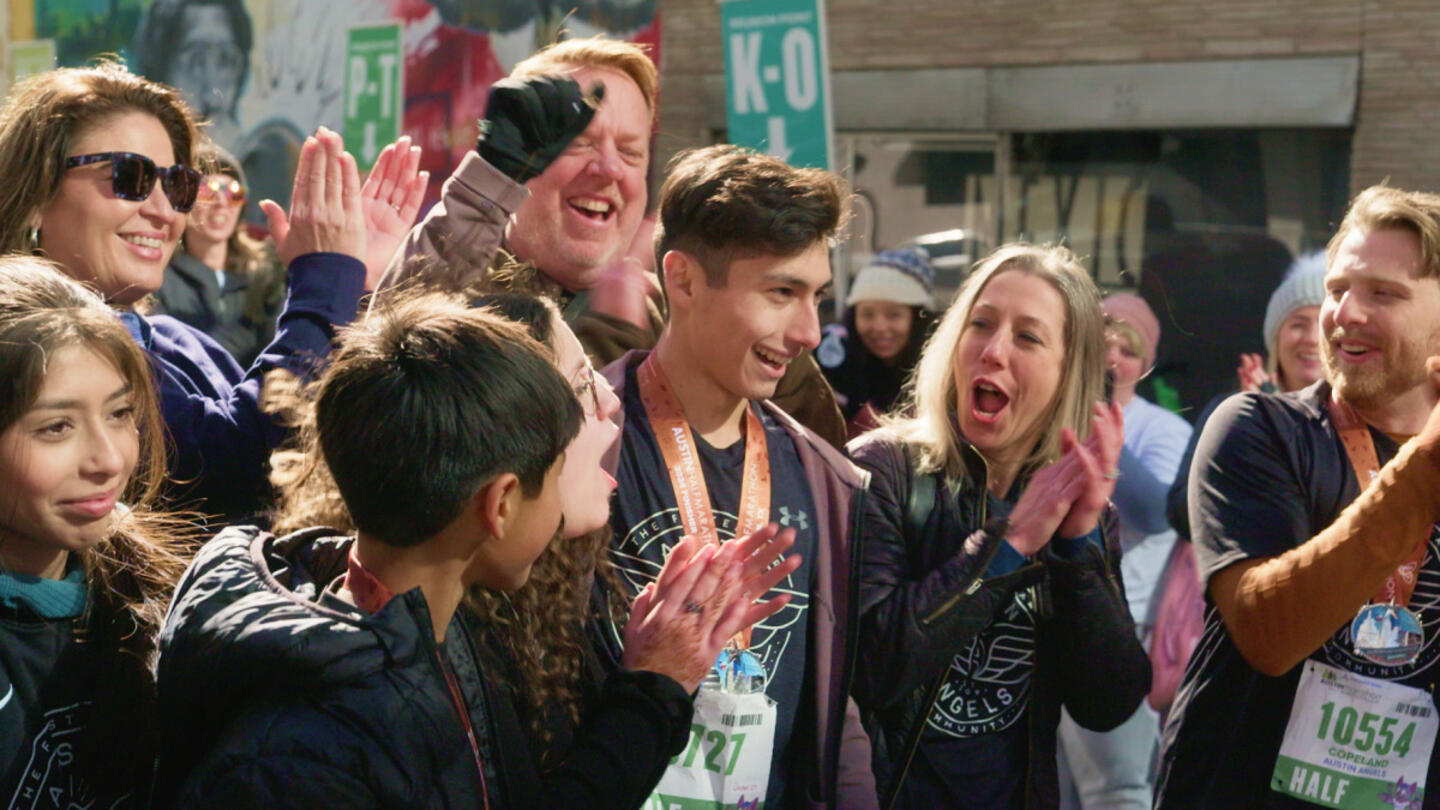Growing up in the foster care system, Abel's journey was full of upheaval from an early age. This instability marked his adolescence, particularly when he found himself assuming a caretaker role for his seven younger siblings at just 15. Initially removed from his home along with his younger brother, they spent two months in a shelter, separated from six of their siblings. Eventually, they found stability and a forever home with the Millers, who welcomed them along with two of their other siblings.
Leaving for college represented a significant step forward for Abel, highlighting his resilience in the face of adversity.
“He’s overcome so many obstacles, so many challenges,” said Susan Ramirez, CEO of National Angels.
But even away at college, Abel still travels three hours by bus every weekend to go home and visit his younger family members. It’s a haul, but after years of instability, the siblings want to be together as much as they can.
So what allowed Abel to thrive and his siblings to remain with one family after years of failed starts?
Community. That’s the National Angels secret sauce. The organization provides resources and support not just for the children but for caregivers too. From one-on-one mentorships to babysitting to community events, they show families experiencing foster care that they’re far from alone on their journey. In doing so, they build relationships that set both families and youths up for life-long success.
To show that he’s still a part of the community that helped him grow and persevere, Abel and his National Angels mentor Connor are running a half-marathon together in Austin.
What Abel doesn’t know? A life-changing surprise is waiting for him at the finish line.
The power of community in uplifting families experiencing foster care
Foster care can be a distressing experience for children. But often overlooked is the rollercoaster caregivers themselves face too.
There are approximately 400,000 children experiencing foster care in the United States, where they go to the homes of well-meaning caregivers who have every intention of housing for as long as the children need. However, around half of the families who decide to foster will close their homes within the first year. It’s not the fault of the children they take in. The families simply don’t have the right resources and support, and often find themselves overwhelmed as a result.
By the time Abel and his siblings landed in the home of Chris and Jana Miller, they had been through a string of shelters and foster homes. At just 15, Abel had been thrust into the role of patriarch for seven younger children.
As unfamiliar as their surroundings were to Abel and his siblings when they arrived, the situation was equally new and intimidating to the Millers, who were first-time parents. They felt huge pressure to do right by Abel. If they didn’t, the reverberations would likely affect Abel long term: 70% of people in state prisons and 50% of those experiencing homelessness have a history in foster care.
“What we know is that some of the toughest social challenges that our country faces, like incarceration and human trafficking, the majority spent time in foster care,” Ramirez stated. “And I just think we can do better than that. I know we can do better than that.”
National Angels knows that it’s not just the children but also the caregivers themselves who need to be surrounded by support systems. The organization pairs people “to do life with each other,” as Ramirez put it, to “encompass the entire family with community so that foster parents foster longer.”
That’s how Abel was first connected with Connor, a local volunteer who stepped in to serve as a mentor. Connor is an example of a vastly underutilized resource in foster care: local community members who want to help but don’t have the capacity or intention to foster themselves. Instead, Connor dedicated one-on-one time with Abel, serving as a reliable pillar of support after years of foster parents who had quickly disappeared.
“Everyone needs relationships, everyone needs community,” Connor said. “This is what it takes to change foster care. It takes people stepping up.”
It worked. After years of spending quality time with Connor and leaning on him for guidance, Abel became the first in his family to go to college. Each weekend, he makes a bus journey from Austin to San Antonio and back to continue supporting his younger siblings.
It shows his siblings just how much life has in store for them. “Think about what that shows to those seven kids,” Connor said. “‘My big brother, he’s out there doing it. He's at school. He’s getting his degree.’ I think that is such an inspiration for those kids.”
Sign up for the Strong & Safe Communities newsletter for stories, ideas, and advice from changemakers working with their neighbors to address the biggest problems we face.
After the finish line, a second victory
The Austin half-marathon was an opportunity to exhibit what years of wrapping community support around families experiencing foster care can look like. Once Abel and Connor took off running at the Austin half-marathon, a group of family, friends, and supporters gathered at the finish line to be there for the big surprise.
“I really have seen him grow into himself really beautifully these past three years,” said Connor. “He shows up for his seven siblings. You have to have that if you want to make a difference.”
Once the pair crossed the finish line, they were triumphant — but it was only the first celebration.
Abel was presented with the keys to a brand-new Subaru Impreza from community partner City Limits Subaru, as well as enough money to cover a year’s worth of gas contributed by a group of community members.
“I did not expect this,” Abel said. “I’ll be able to skip the bus and just hop in my car, and go straight to Austin and see my siblings.”
“If every community would wrap around children and families that are experiencing foster care, we can change it,” added Ramirez.
As much as Abel’s story may seem like a happy ending, it’s just the beginning. Many children age out of the foster care system at 18 and are left on their own to navigate life. But when community members and relationships are central to their journey, it means those support systems can last for years to come, with no deadline.
Perhaps nothing better represents this longevity than Abel’s siblings, who immediately piled into the backseat of his car as he took them for an inaugural joyride. With the community wrapped around them too, they will each get a turn to excel just as much as their oldest brother.
“You guys will slide right behind him and run the same race in life, and you will do amazing things,” Ramirez said. “I believe it.”
***
National Angels is supported by Stand Together Foundation, which partners with the nation’s most transformative nonprofits to break the cycle of poverty.
Learn more about Stand Together’s efforts to build strong and safe communities and explore ways you can partner with us.

People with disabilities want meaningful work — and Hugs Cafe is making it happen.

At this ‘resort,’ children with intellectual disabilities are seen as gifts to be celebrated and loved.

Veterans experience loss when leaving service. Could this be key to understanding their mental health?

The Grammy-nominated artist is highlighting the stories we don’t get to hear every day.
